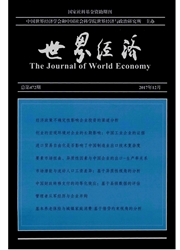

 中文摘要:
中文摘要:
本文基于手工查找的2005—2010年全国2855个县区最低工资标准数据、中国工业企业数据库和海关贸易数据库的匹配数据,就最低工资标准对企业出口产品质量的影响进行了研究。研究发现:(1)中国企业出口产品质量在2000—2011年总体呈上升趋势,并表现出两个明显的“U”型变化;(2)最低工资标准显著抑制了企业出口产品质量,研发投入、企业规模、生产效率和市场竞争有助于提升出口产品质量,而融资约束则会降低出口产品质量,并且这一结论非常稳健;(3)最低工资标准对企业出口产品质量的抑制作用存在行业、所有制和地区间的差异,劳动要素密集度越高,抑制作用越大;对国有企业的抑制作用大于非国有企业;对中部地区的抑制作用大于东部,对西部地区的影响则不显著。
 英文摘要:
英文摘要:
By manually-collected data from 2005 to 2010 of minimum wage standards in 2,855 Chi- nese counties as well as China industrial enterprises and customs trade database matches, we empirically analyzes the effect of minimum wage standards on firms' export quality. The analysis shows that : ( 1 ) Chi- nese firms' export quality exhibits an upward trend from 2000 to 2011, accompanied with two obvious U- shape changes; (2) minimum wage standards significantly inhibit firms' export quality. Research inputs, firms' scales, production efficiency and market competition can help enhance export quality, while finan- cing constraints will reduce it. This result is quite robust ; (3) the inhibition effect of minimum wage on ex- port quality varies across different industries, corporate ownerships and regions. Industries with higher labor factor intensity reflect greater inhibition effect; state-owned firms display more intense inhibition effect than private firms ; the inhibition effect is much more significant in central China than in the east, but is not sig- nificant in the west. This paper provides important implication that Chinese firms can create new competitive advantage in export through improving the minimum wage policy and upgrading the export quality.
 同期刊论文项目
同期刊论文项目
 同项目期刊论文
同项目期刊论文
 期刊信息
期刊信息
